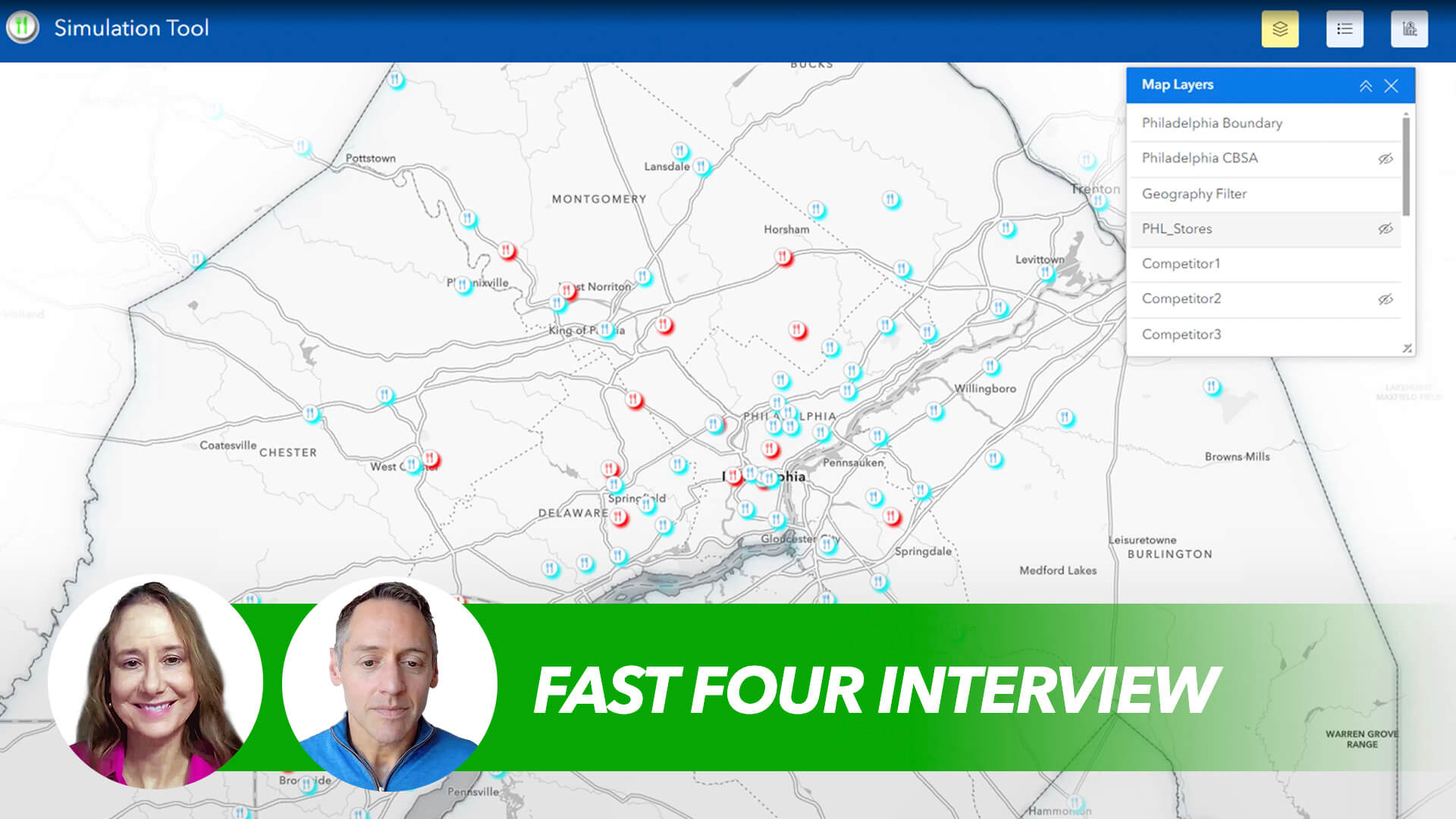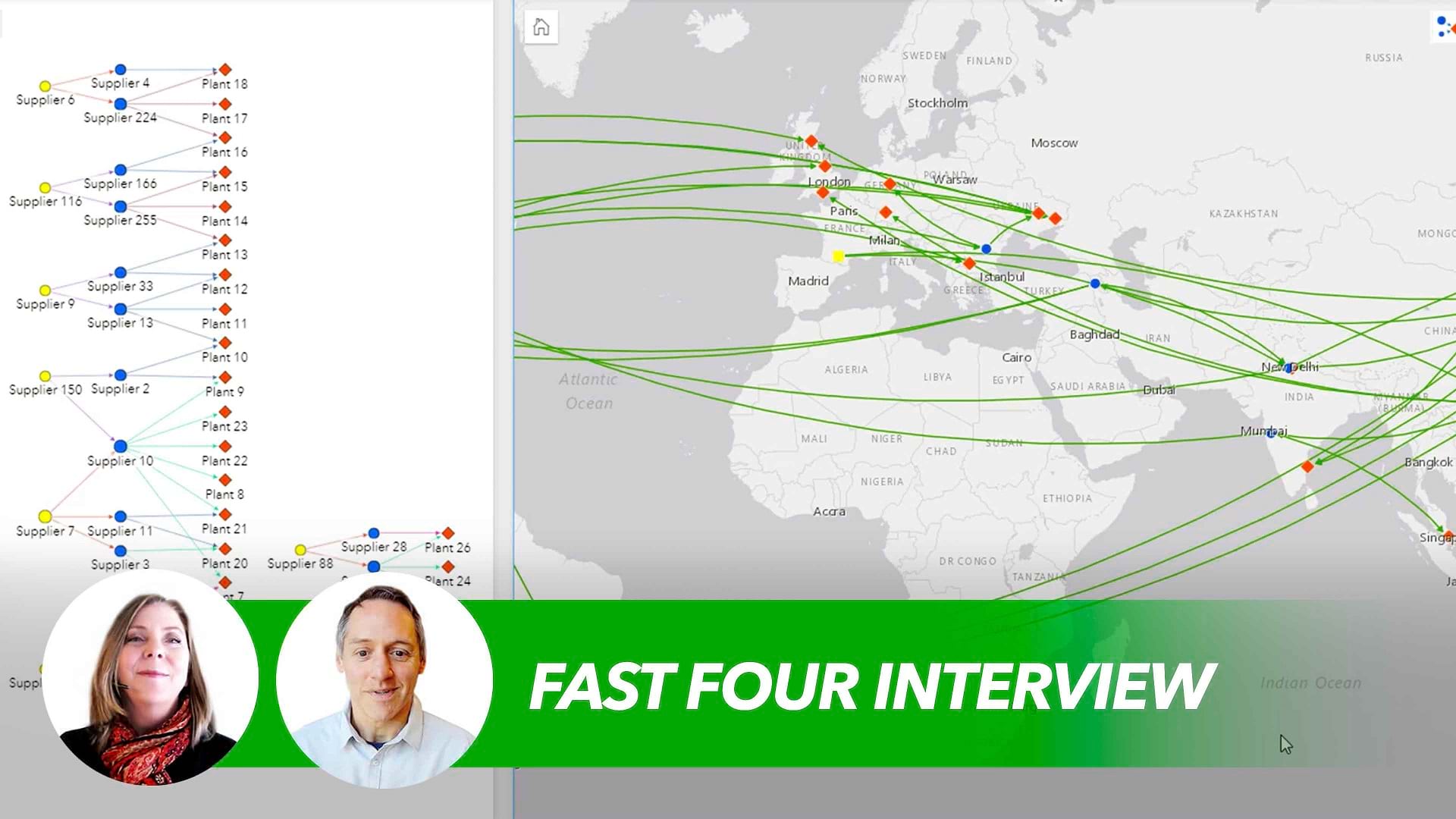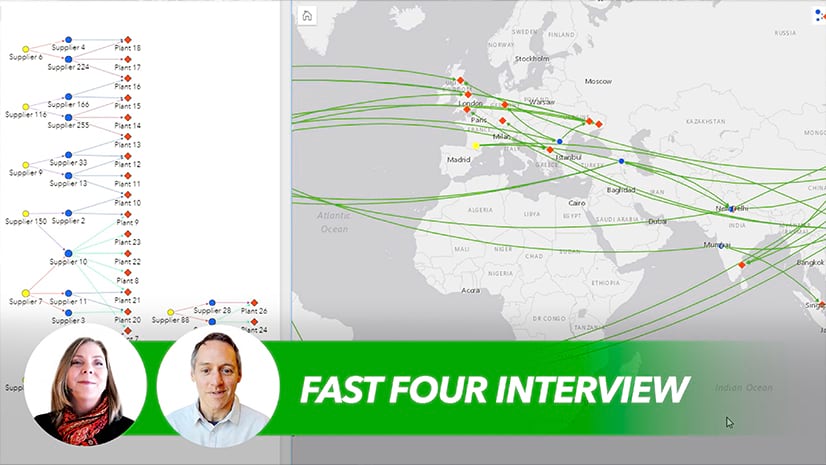Business executives should think like football coaches—studying the field, knowing where players are positioned, and gaming out scenarios for offense and defense.
That’s the advice of Dena Cross, a consultant who has advised Fortune 500 companies and global organizations throughout her career. As a member of Esri’s Professional Services group, Cross has witnessed the best practices of business leaders. To strengthen those practices, she helps executives harness location intelligence to mitigate risk (defense) and take advantage of market opportunities (offense).
In this Fast Four interview, Cross details her gridiron strategy and explains how one executive developed a geographic playbook to prepare for an unpredictable business climate.
Watch the interview video or read the transcript below.
Chris Chiappinelli: Welcome to the WhereNext Fast Four. In these brief conversations, we take a concept that is top of mind for business executives—or should be—and we break down why it’s interesting, how it’s changing, and what executives can do about it.
I’m glad to have Dena Cross with me this time. She has spent much of her career advising Fortune 500 companies and other organizations, and she’s got a unique perspective on how they can navigate the world these days. Dena, let’s start with some basics. What’s the situation for today’s business execs?
Dena Cross: As we all know, today’s businesses often have a global footprint. That means keeping track of operations, partners, service providers, and suppliers in different regions of the world. At the same time, there’s a lot of disruption—short-term, mid-term, and even long-term—and it’s becoming more common.
We all know the example of the COVID pandemic, supply chain disruptions, extreme weather, not to mention the emergence of regulatory requirements throughout the world, energy transitions, and last of all, the impact of geopolitical situations.
These events can cause large risks for business. But on the flip side, they can create great business opportunities. To embrace those opportunities [and] mitigate the risks, executives need to know how to plan how the business will react if and when disruptions emerge.
Chiappinelli: What needs to change for businesses to start planning that way?
Cross: Executives should think like a football coach. The first thing in planning the right offense and defense is to establish where the business is. Know your players, know your locations, including operations, your partners, and your suppliers. The idea isn’t to predict which disruption is going to occur. Instead, use generalized scenarios to pressure-test the business.
For example, weather disrupts the supply chain; EU regulators establish a new direction that companies have to react to; geopolitical tensions threaten the availability of different suppliers and trading partners.
These events have a knock-on effect in locations around the world.
Chiappinelli: That’s a basic form of location intelligence and awareness. But what comes next?
Cross: Executives need to have their leadership playbook, and have their experts quickly gather and analyze information.
You want to play out those disruption scenarios in various locations and see, number one, what will happen, what would be the ripple effects should a situation occur? And, number two, what alternatives might they have?
So, let’s step back a little bit on what that might mean. Your GIS analyst might create a map dedicated to alternative suppliers, for example, or if something shuts down in a particular area. Or if, on the other hand, on the offense side, they could have scenarios about acquiring a competitor, or how to move business very quickly from one region of the world to others as opportunities arise.
Chiappinelli: Companies that have that kind of playbook—what kind of benefits have they seen?
Cross: Well, from what I’ve seen, if executives prepare for disruption and GIS analysts and experts can deliver that location intelligence quickly, it helps the company play offense or defense and react a lot more quickly than their competitors to contain risk or to act on these opportunities.
In one of my recent engagements, I worked with an executive leader, and she has a huge playbook that she ran every year with various scenarios. GIS was a big part of this.
On the defensive side, she was able to balance global business, focusing on risk mitigation should certain things occur, such as how to reroute suppliers, how to work around supply chain issues should a country not be a viable supplier anymore.
On the offensive side, she could apply location alongside her own economic, demographic, and other data to make key investments, including, in this case, a large acquisition in an area with high growth potential. Executives need to be ready for game day.
Chiappinelli: That’s an interesting perspective on a new playbook for the business community, you might say. Thank you for sharing your insights, Dena.
Cross: Thank you. Great to be here with you today.
Chiappinelli: For those of you who want to learn a little bit more about the topic, check out the link on the screen or in the article. For the WhereNext Fast Four, I’m Chris Chiappinelli. We’ll see you next time.
The Esri Brief
Trending insights from WhereNext and other leading publicationsTrending articles
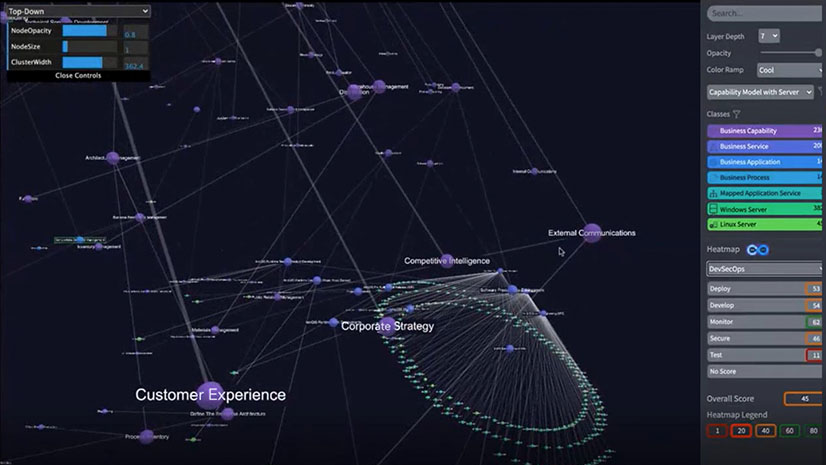
December 5, 2024 |
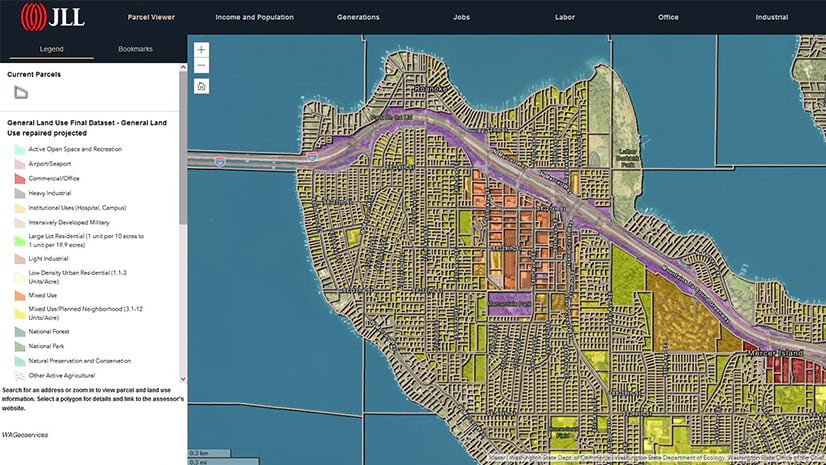
July 25, 2023 |
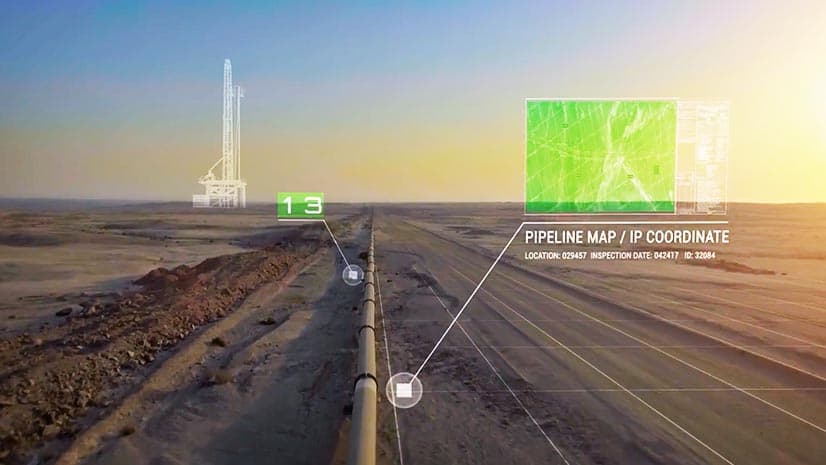
November 12, 2018 |
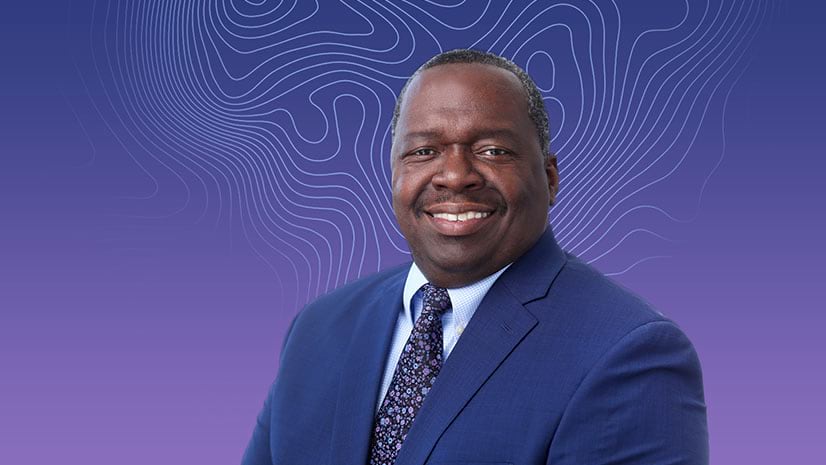
February 1, 2022 |
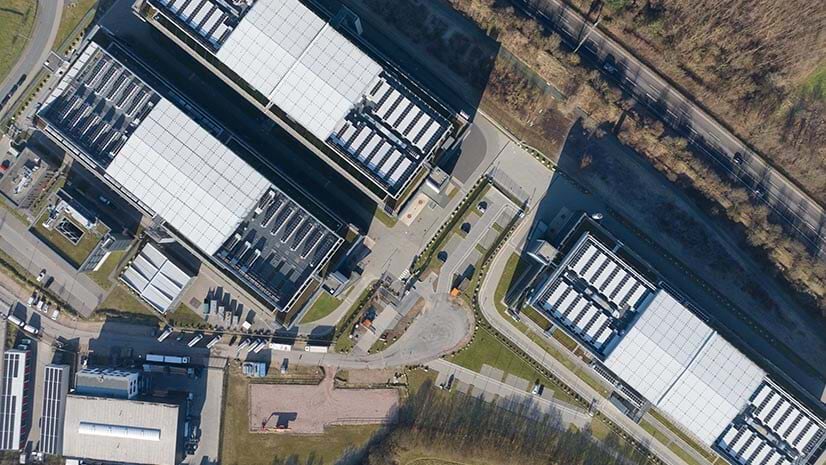
July 29, 2025 |

July 14, 2025 |
